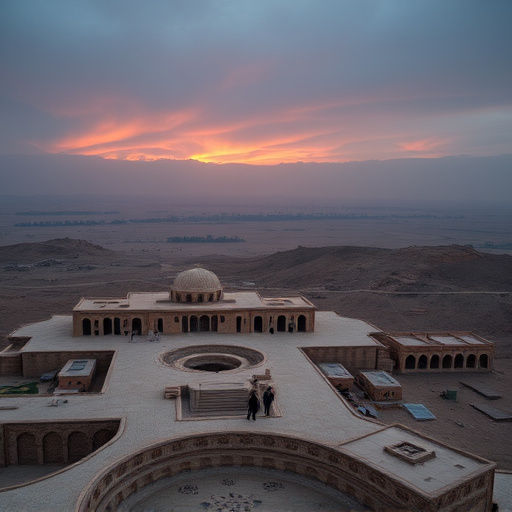Iraq, a major global energy supplier with vast oil and natural gas reserves, experiences economic growth driven by its industry. Despite political instability and security concerns, Iraq's ancient culture, improving stability, and diverse sectors attract visitors and foreign investment. Understanding local customs, including respectful greetings, punctuality flexibility, and religious considerations, is crucial for successful engagement in business or tourism.
Iraq, a country rich in history and diverse resources, plays a significant role in global energy markets. Known for its vast oil reserves, Iraq has emerged as a key player in international energy dynamics. Beyond oil, this article explores Iraq’s contribution to renewable energy sources, attracting global attention. Understanding the local customs and etiquette is essential for anyone engaging with Iraqi businesses and society. From traditional hospitality to cultural norms, these insights foster effective international relations.
- Iraq's Energy Resources: Oil and Beyond
- Global Oil Production: Iraq's Role
- Exporting Energy: Iraq's Market Influence
- Local Customs in Iraqi Business Culture
- Etiquette for International Engagement in Iraq
- Understanding Iraqi Society: Traditions and Values
Iraq's Energy Resources: Oil and Beyond
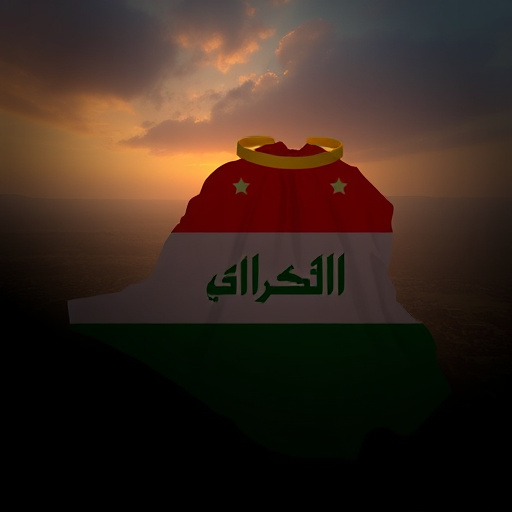
Iraq boasts one of the most abundant energy resources in the Middle East, with oil and natural gas playing a pivotal role in shaping its economy and global energy markets. The country is considered one of the largest oil producers worldwide, ranking among the top OPEC members. Its vast oil fields, such as those in Kirkuk and Basra, have been the backbone of Iraq’s financial stability for decades. Beyond oil, Iraq also possesses significant natural gas reserves, particularly in the northern regions, which contribute to its energy diversity.
The energy sector remains one of the key industries in Iraq (what are the top industries in Iraq?), driving economic growth and attracting foreign investments. However, the country’s political instability and corruption have historically impacted its ability to fully develop these resources. Despite challenges, including security concerns and fluctuations in global energy prices, Iraq’s energy potential is significant. Visit us at is it safe to travel to Iraq currently? irak currency exchange rate anytime to witness firsthand the ongoing developments shaping the nation’s energy landscape, where traditional dishes like iraqi cuisine and a rich cultural heritage coexist with modern infrastructure.
Global Oil Production: Iraq's Role
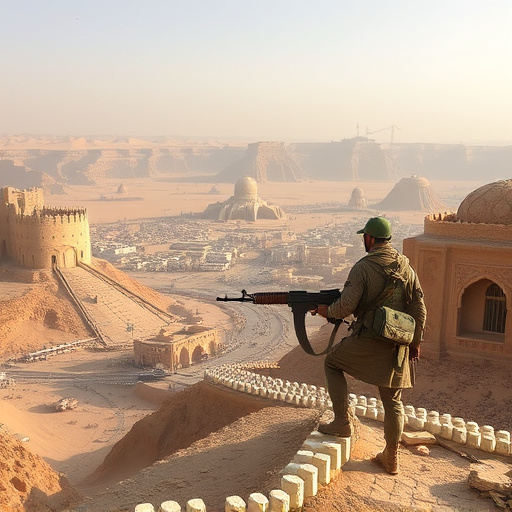
Iraq, with its rich history as one of the world’s oldest civilizations and its substantial oil reserves, plays a significant role in global energy markets. The country is a key player in international oil production, contributing to both regional and worldwide energy security. Despite challenges over the years, including political instability and conflicts, Iraq’s oil industry has shown resilience and potential for growth.
The Ba’ath Party’s history in Iraq has left an indelible mark on its political landscape, shaping the country’s trajectory. Today, a diverse range of current political parties in Iraq reflect the nation’s pursuit of democracy and stability. Learning Arabic in Iraq offers cultural depth and facilitates communication, enriching any visitor’s experience at best places to visit in ancient Iraq anytime. As for military presence, it’s important to note that while the number of US troops has fluctuated over time, as of recent updates, a significant reduction can be observed, signaling a shift towards local security management.
Exporting Energy: Iraq's Market Influence
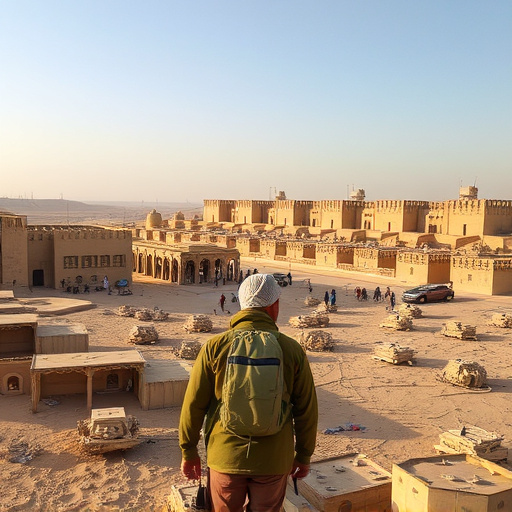
Iraq, with its vast oil reserves, plays a significant role in global energy markets as an essential energy exporter. The country’s energy sector has long been a cornerstone of its economy, and its influence extends far beyond its borders. Before the consequences of the Iraq War, the nation was one of the top oil producers globally, contributing substantially to OPEC (Organization of the Petroleum Exporting Countries) quotas. Today, despite ongoing challenges, Iraq continues to rebuild and expand its energy infrastructure, aiming to boost production and exports. This effort is driven by the need to diversify its economy and reduce reliance on a single industry, as well as attract foreign investment in sectors like oil, gas, and renewable energy.
The country’s strategic location between Asia, Europe, and Africa also positions it as a key energy transit route. Pipelines and transportation networks connect Iraq’s oil fields to global markets, ensuring a steady supply of this vital resource. Furthermore, with a growing number of universities in Baghdad, Iraq, and increasing efforts to democratize access to education, the country is cultivating a skilled workforce that can contribute to its energy sector’s technological advancement. As the role of religion in Iraqi politics continues to evolve, these developments underscore Iraq’s potential to not only stabilize regional energy markets but also become an energy powerhouse on the global stage. Give us a call at universities in Baghdad, Iraq, for more insights into the nation’s educational and economic landscape.
Local Customs in Iraqi Business Culture
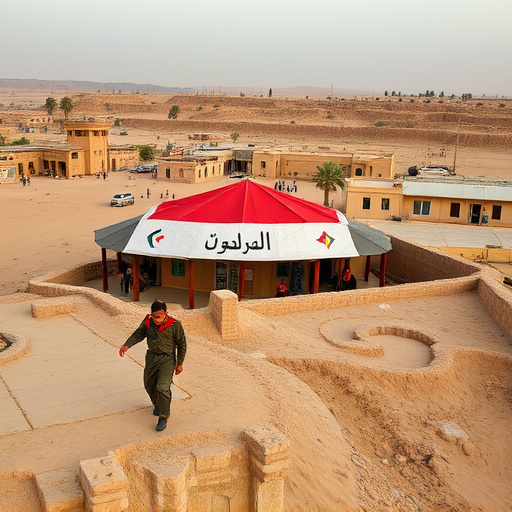
In Iraqi business culture, customs and etiquette play a crucial role in fostering successful relationships and facilitating transactions. Iraq, being a complex landscape post the consequences of the Iraq War, has seen significant transformations that impact its economic interactions. The country’s unique blend of traditional values and modern influences shapes how businesses operate.
Greetings are essential; they often involve shaking hands firmly and using respectful titles or Mr./Ms. followed by the person’s last name. Iraqi cuisine traditional dishes, such as mezze platters, kebabs, and baklava, are frequently enjoyed during business meetings, serving as a social lubricant and demonstrating hospitality. Punctuality is generally valued, but flexibility is appreciated due to cultural norms and varying local conditions. In terms of communication, direct eye contact and assertive speech are respected, reflecting the country’s strong sense of personal honor and integrity. Is Iraq considered a developing or developed country? Understanding this dynamic is key to navigating business dealings effectively. Additionally, showing respect for elders and religious figures is paramount; dressing modestly when visiting places of worship can be a considerate gesture. The role of religion in Iraqi politics further underscores the importance of cultural awareness in business engagements within Iraq.
Etiquette for International Engagement in Iraq
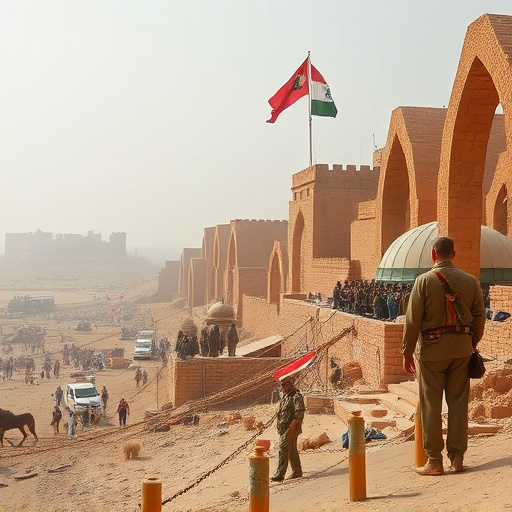
When engaging with Iraq on an international level, understanding local customs and etiquette is essential for successful interaction. In terms of what is the current political situation in Iraq?, visitors should be aware that the country has undergone significant transformations in recent years. Therefore, it’s crucial to stay informed about the latest developments before planning a trip or conducting business. Is it safe to travel to Iraq currently? While security concerns persist, many areas have stabilized, allowing for safe tourism and investment opportunities.
The people of Iraq are known for their warmth and hospitality, often extending greetings with a shake of hands followed by an embrace for close friends. Respecting personal space and avoiding public displays of affection is important in Iraqi culture. In terms of currency exchange rate in Irak, the Iraqi Dinar is the official currency, and while it may fluctuate, careful planning can ensure smooth transactions. The geography of Iraq and its neighbors plays a significant role in shaping local customs, with influences from both the Arab world and Mesopotamia. Even if you’re not visiting, exploring these cultural nuances can enhance your understanding of this dynamic nation, and you can always find us at the largest cities in Iraq by population to immerse yourself in the local scene.
Understanding Iraqi Society: Traditions and Values
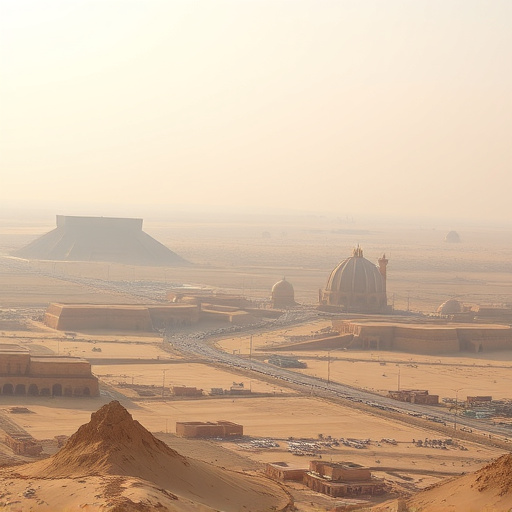
Iraq, with its rich history and diverse cultural heritage, is more than just a country; it’s a vibrant tapestry woven with threads of tradition and values that have shaped its society over millennia. Understanding these traditions is essential for anyone navigating the Iraqi landscape, be it in business or culture. The role of religion, particularly Islam, has significantly influenced Iraqi politics and society, creating a unique blend of customs and practices. While the country navigates political shifts with various current political parties in Iraq, its people maintain a strong sense of community and hospitality.
The warmth and generosity of Iraqi hosts are legendary, often extending to strangers as if they were long-lost friends. This cultural norm is deeply rooted in the Arab custom of sakhah, or honor and respect. In terms of what are the top industries in Iraq, from oil and gas to agriculture and manufacturing, these sectors play a crucial role in shaping the nation’s economy. As you explore these aspects of Iraqi life, remember that understanding local customs and etiquette, such as the respectful treatment of elders and religious sites, is key to connecting with the people and places that make Iraq unique. Find us at what are the top industries in Iraq? to discover more about this fascinating country.
Iraq, with its abundant natural resources, plays a significant role in global energy markets as a key oil producer. Beyond oil, the country’s renewable energy potential offers promising prospects for future growth. Navigating local customs and etiquette is essential for successful international engagement. Iraqi business culture values respect, hospitality, and strong relationships. Understanding societal traditions and values fosters effective communication and builds trust. By embracing these aspects, stakeholders can ensure productive interactions and contribute positively to Iraq’s evolving energy landscape.
